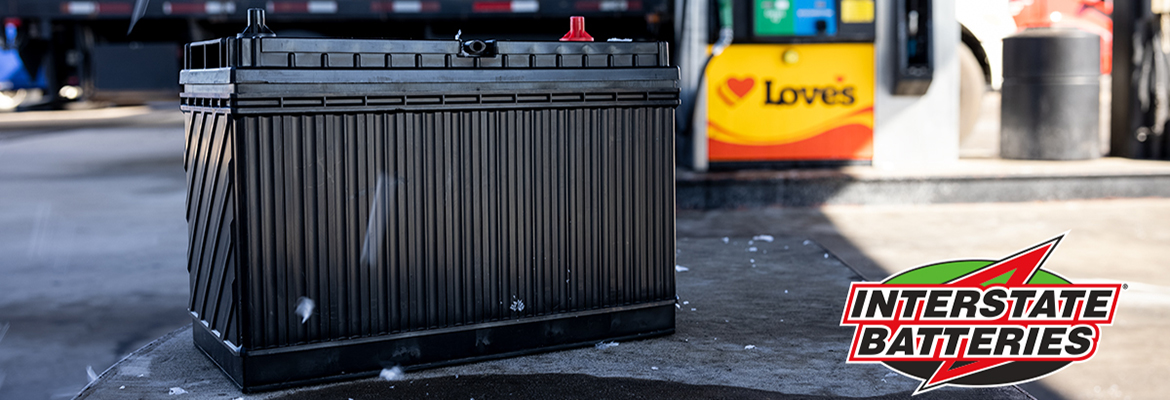Prevent a battery breakdown this winter
How to prevent battery breakdown this winterBy Youssef Sleiman, staff writer for Interstate Batteries
Frigid winter weather is notorious for killing batteries in trucks.
For truck owner-operators, battery-killing temperatures are a double hazard. You can lose days and dollars waiting for a replacement battery. Instead, with a few proactive steps, you might never deal with a dead battery.
Let’s start with the first and most important step you can take to prevent any battery breakdown this winter.
- Test your batteries before winter. Break down the battery packs (both the engine cranking and the auxiliary) and test each battery individually. (This should be part of a typical preventive maintenance schedule.) Replace any battery that tests at less than 12 volts or gives a cranking rating weaker than what its sticker says. If you’re not sure, replace it. Better safe than stopped. Visit your nearest Speedco or Love’s Truck Care for a battery test now.
- Recharge batteries when warm. They’ll recharge faster and more completely when they’re not colder than 65°F. All chemical reactions slow in the cold. That’s why batteries are rated in cold cranking amps (CCA); it’s a battery’s minimum performance in harsh conditions, specifically at 0°F.
- Use your engine block heater. A warmer engine is easier to start, and when cold temperatures suppress your cranking batteries’ power, every bit of help makes a difference.
- Recharge your auxiliary batteries after use. If it gets cold enough, winter can freeze batteries solid. Fully charged batteries are more resistant to freezing than run-down or even moderately charged batteries. Your auxiliary battery pack is especially vulnerable if you don’t recharge them after every use.
- Charge cranking batteries before a cold snap. Your engine’s alternator already charges your cranking batteries. But your alternator isn’t designed purely for recharging; it’s running the rest of your electronics. So, put your batteries on a trickle charger if you know temps will really drop in the morning.
- Park near warm buildings. Wind chill isn’t a factor for batteries; it’s the ambient temperature that can kill them. Parking in a garage is nice but not always possible. Parking near a warm building or heated equipment may make the difference of one or two degrees – potentially the difference between a strong start in the morning or not.
- Clean terminal connections. Corrosion at the terminals adds electrical resistance to starting the engine. And a little resistance can keep a winter-weak battery pack from starting the engine. A little terminal cleaner (or distilled water and baking soda) goes a long way to protect your mornings.
- Use your batteries daily. You might not need the reminder, but your batteries need daily use. Discharging, recharging, discharging again – keeping both battery packs active all winter, especially on the coldest days – will keep you starting strong.
- Try a battery blanket. You’ll have a hard time finding one off the shelf that fits your entire battery pack. However, if you can, get a cover to safely insulate your battery packs from the cold. A battery will naturally warm as it recharges during your drive, and the blanket will stretch that warmth out.
- Test your batteries again during winter. Even weak batteries will start an engine on a warm day. That’s why, in the winter, batteries will show their weaknesses, either on a tester or by not starting on a cold morning. Take extra precaution mid-winter and test the whole battery pack again. You can get a battery test at your nearest Love’s or Speedco.
.png?h=50&iar=0&w=194)
